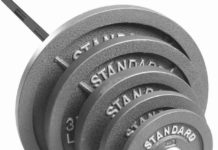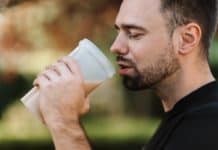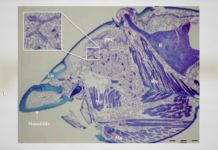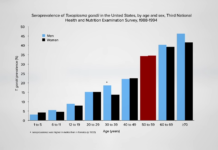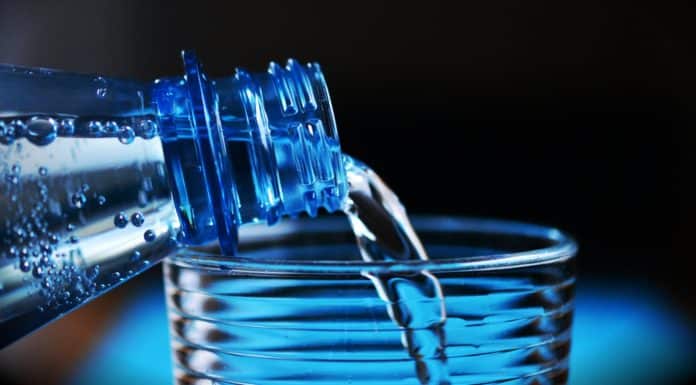When it comes to bottled water, many of us might take for granted that it will last indefinitely. After all, water is one of the most basic elements of life and it's almost impossible to imagine it ever going bad. But the truth is, bottled water does have a shelf life and understanding the longevity of bottled water is essential for keeping safe and healthy.
Before we dive into how long bottled water can last, let's first explore some key concepts such as BPA, shelf life, and expiration dates.
What is BPA?
BPA stands for bisphenol A, which is an industrial chemical used for a variety of purposes, including making certain types of plastic. As it is widely used, BPA can often be found in common items such as food containers, water bottles, and even cash register receipts.
Unfortunately, prolonged exposure to BPA has been linked to a number of health risks, from infertility to heart disease. Therefore, it's best to minimize contact with BPA and avoid reusing plastic bottles for extended periods of time.
Explore the Surprising Longevity of Bottled Water
Have you ever been curious to know how long bottled water lasts for? Well, you’re not alone! Over the years, bottled water has become a popular choice for hydration and its surprising longevity has been a topic of interest. In this guide, we will cover key concepts related to the unexpected shelf life of bottled water. We will discuss unopened bottles, opened bottles, safety precautions, expiration dates, and more. So let’s dive right in!
Understanding BPA, Shelf Life and Expiration Dates
Bottled water can seem like a convenient way to stay hydrated on the go, but it's important to understand the effects of certain components in order to ensure that you're drinking water safely. Chemical compounds like BPA, the shelf life of water, and expiration dates are all factors that contribute to your safety when consuming bottled water.
For starters, BPA is a synthetic compound found in plastic on many consumer products. While not all plastic bottles carry BPA, it's usually found in certain types of plastic including polycarbonate plastics and epoxy resins. Prolonged exposure to BPA can lead to health risks such as increased risk of cancer, infertility, and developmental problems in infants and children.
The shelf life of water refers to how long an unopened bottle can last before it begins to degrade in quality. Generally, bottled water is viable for up to two years if stored properly in cool, dark and dry places. Exposure to direct sunlight, extreme temperatures, and air particles can alter the shelf life significantly.
While unopened bottles have longer shelf lives, once opened, the water inside needs to be consumed much more quickly. Depending on its composition, water can begin to spoil after just a few days. Therefore, it's important to take extra precautions when drinking from opened bottles.
When discussing bottled water it's also essential to pay attention to expiration dates. These dates provide an indication of how safe the water is for consumption and it's important to throw away any expired water.
Unopened Bottles
When it comes to the longevity of bottled water, the biggest factor is whether or not the bottle has been opened. Unopened bottled water can last for up to 5 years if stored properly. The water is typically packaged in secure containers that are not easy to open. This helps to prevent potential contamination from external elements such as air and light.
The production of bottled water is also tightly controlled and monitored by government agencies. Bottled water is tightly sealed and inspected for quality before being brought to market. This helps to ensure that only safe and healthy water is available for consumption.
Bottles contain a variety of chemical compounds such as BPA which may affect the longevity of bottled water. These compounds can seep into the water over time, contaminating it. Taking these factors into consideration will help you determine how long your bottled water can last.
How Is Bottled Water Made and Stored?
Bottled water is sourced from natural springs, lakes, or wells. The gathered water is then filtered, purified, and tested for safety before being bottled and shipped off to stores. Bottled water is usually stored in air-conditioned facilities, such as warehouses, to keep it at an optimal temperature of around 10°C (50°F). The bottles are also kept in dark-colored retail cases to protect it from sunlight, which can add impurities to the water.
Explaining BPA
BPA stands for Bisphenol A, which is a chemical compound used to make certain plastics. Because it is used in many everyday products, like bottled water containers, it is important to understand how affects bottled water.
When these plastics are exposed to heat or light, BPA can seep into the containers and contaminate the water inside. This can have a harmful effect on your health. Studies show that high levels of BPA can increase your risk of certain illnesses like cancer, endocrine disruption, reproductive problems, and behavioral changes.
It is important to check the label of the bottle you are purchasing for information on BPA. If it is listed, do not consume the water. The best water to buy is one that is free from any chemicals.
How Long Can Unopened Bottled Water Last?
The shelf life of unopened bottled water largely depends on the packaging and storage process. Generally, bottled water remains safe to drink for at least two years, perhaps even longer if stored properly. However, it is important to note that certain factors such as temperature, direct sunlight, and exposure to air can affect its quality.
When water is bottled, it is usually kept in airless environments with little light exposure. As a result, it has very low levels of bacteria and chemical compounds like BPA which are found in some plastic bottles. BPA can potentially leach into water and cause health risks if consumed for long periods of time.
Maintaining the optimal storage conditions is key if you want to keep your bottled water safe and fresh. Store your water in a cool, dark place away from direct sunlight or heat sources, and make sure the bottle is sealed tightly to prevent any air from entering. If you follow these tips, you can expect your bottled water to remain safe to drink for at least two years if not longer.
Opened Bottles of Water
Once a bottle of water has been opened, its shelf life is significantly reduced. Air and light exposure can cause the water to spoil and become unsafe for consumption. The main factors that influence how long an opened bottle of water stays fresh include the type of plastic it is made out of, the seal on the bottle, and the temperature of the environment where it is stored.
Typically, bottled water with a sport cap or no seal will last for 2-3 days, while bottles with a sealed cap and airtight seal will remain fresh for up to 4 weeks. It is important to note that the warmer the environment, the faster the water will spoil.
Types of Plastic
The type of plastic used to make the bottle can play an important role in determining how long the water stays fresh. Water bottles made from polyethylene terephthalate (PET) are designed to degrade more rapidly, which means it should be consumed sooner than bottles labeled as high-density polyethylene (HDPE).
Seal of Bottle
The seal on the bottle’s lid also affects how quickly the water spoils. A bottle with a sport cap or no seal will not have the same level of protection against air and light exposure as a bottle with an airtight seal, so it is important to pay attention to the type of closure when determining how quickly the water should be consumed.
The Impact of Air and Light on Opened Bottles of Water
When a bottle of water is opened, the liquid inside comes into contact with oxygen and light. This can cause the water to become stale and alter its taste. Oxygen is known to cause changes in the chemical composition of water, resulting in the deterioration of its quality. Similarly, exposure to sunlight can reduce the levels of minerals in water.
The effects of air and light on bottled water may vary depending on the type of plastic used for the bottle as well as its seal. For instance, opaque bottles block out light and reduce the rate of evaporation, while clear bottles allow more light in and increase the evaporation rate. Similarly, tightly sealed bottles will be more resistant to air, while poorly sealed bottles will be exposed to more oxygen.
Examining Bottle Components
The components used to make bottled water can significantly affect its shelf life. These components include the type of seal and plastic used on the bottle. The seal helps to keep the water inside the bottle free from extra air and contaminants, while the type of plastic can prevent bacteria from getting into the water.
When it comes to the seal, water bottles generally have a screw-cap lid or a pop-top lid. Screw-cap lids are secure, however, they may not provide an airtight seal. Pop-top lids, on the other hand, provide an airtight seal and are often found on containers that contain carbonated drinks.
The type of plastic used on a bottle of water is also important. Generally, polyethylene terephthalate (PET) is used for bottled water. This plastic is seen as one of the safest types and is also recyclable. However, PET plastic can become brittle over time, and so it is important to be mindful when handling a PET plastic bottle.
Explaining the Estimated Timeline for Opened Bottled Water
We’ve all opened a water bottle and wondered how long it would stay drinkable for. The answer to that depends on a few variables. How long your opened bottled water will be safe to drink is determined by factors such as air, light and the container it is stored in.
When it comes to air, oxygen exposure will cause a change in taste and can cause bacterial growth. Light exposure can cause some water to adopt a “skunky” taste if left too long.
Finally, the material of the container also plays a part in its shelf life. Plastic containers are more susceptible to bacteria and chemical leaching, whereas glass containers will be safer for storing longer.
In general, an open water bottle stored in a clean, cool place can last 2-3 days. If you need to store it longer, you can refrigerate the bottle and it may last up to 7 days. It's important to remember that this timeline could vary based on individual circumstances. To fully maximize its shelf life, you should plan to consume the water within 2 days of opening, and discard any remaining water after 7 days.
Precautions and Expiration Dates
When it comes to consumption of bottled water, it is important to pay attention to expiration dates, as well as other safety guidelines to make sure you’re drinking a safe product. Bacteria can grow in water bottles when they’ve been left in humid conditions or improperly capped, so following the right precautions when consuming bottled water is important.
Consumers should assess potential contamination risks after expiration, as while most water is safe to drink for up to two years, it can depend on how it was stored. It's also vital to know how best to identify when store-bought or tap water is no longer safe to drink.
Here are some tips on how to prolong the shelf life and safety of water:
- Store bottles in a cool, dark place
- Check for leaks before storing
- Keep bottles away from heat or direct sunlight
- Clean containers regularly
- If opened, drink contents within one week
Assessing Contamination Risks After Expiration
Knowing the potential risks associated with consuming expired bottled water is important, as it helps ensure your safety. If a bottle of water is past its expiration date, it may contain harmful bacteria or other contaminants that could put you at risk for illness. To minimize the possibility of getting sick from drinking expired water, there are some precautions you can take.
Before drinking expired bottled water, it is important to inspect the bottle for any obvious signs of contamination. Check the seal of the bottle to make sure it has not been tampered with and has maintained a tight closure since it was first opened. Additionally, examine the contents of the bottle itself for any discoloration, particles, or an abnormal smell, as these can all indicate the presence of bacteria or other contaminants.
If it appears that the bottle has been contaminated, it is safest to discard the water. Additionally, if the expiration date on the bottle has passed, it is best to play it safe and discard the water, as its quality cannot be guaranteed.
Tips on Prolonging Shelf Life of Bottled Water
When it comes to extending the shelf life of bottled water, there are a few simple steps you can take. Here’s an outline of tips to help prolonged the longevity of your bottled water:
- Store bottled water in a cool, dry place away from direct sunlight.
- Don’t expose bottles to extreme temperatures. For example, do not store in a car or in a hot attic.
- Check the expiration date on the bottle.
- Make sure the bottle seal is properly closed after each use.
- Use an airtight container or pack to prevent bacteria from entering the bottle.
Following these tips will help to ensure your stored bottled water remains safe and fresh for as long as possible.
Identifying when Water May no Longer be Safe to Drink
It's important to be mindful of the safety of the water you consume, whether that is store-bought or tap water. As such, it is useful to know how to determine when water may no longer be safe to drink.
A useful method of checking for contamination in water is to examine the smell and taste of it. If either smell or taste appears off, it is likely best to not consume the water.
In addition, if a plastic bottle containing water is expanded, discolored, or has any sort of floating particles present, the water should not be consumed. It is also important to check the expiration date on bottles that contain store-bought water.
Tap water is also subject to contamination risks. To reduce the chances of consuming contaminated water, only use a reliable source of tap water. Be sure to also regularly check the quality of the water with your local water monitoring agency.
Conclusion
Now you know the surprising longevity of bottled water. Unopened bottles have a much longer shelf life than opened bottles, but it is important to pay attention to expiration dates and potential contamination risks. It is also important to remember that air and light can affect the quality of water and that different types of seals and plastics can contribute to how long your water will last.
Following safety precautions when consuming bottled water is essential. Knowing the basics of bottling, storage and shelf life can help you select the best product and ensure your water is safe to drink.
Recap the importance of following safety precautions when consuming bottled water
When drinking bottled water, it is important to follow a few basic safety precautions. Ensuring that any bought bottles are not past their expiration date is a key step. Additionally, if you have opened a bottle, keep an eye on factors such as how long it has been open, the amount of light and air that the bottle has been exposed to, and the type of seal and plastic used for the bottle.
Following these guidelines will help keep your bottled water safe to drink, for as long as possible. Regularly checking for expiry dates and signs of contamination are important steps to take when drinking bottled water.

